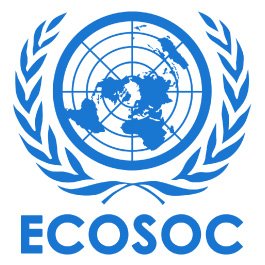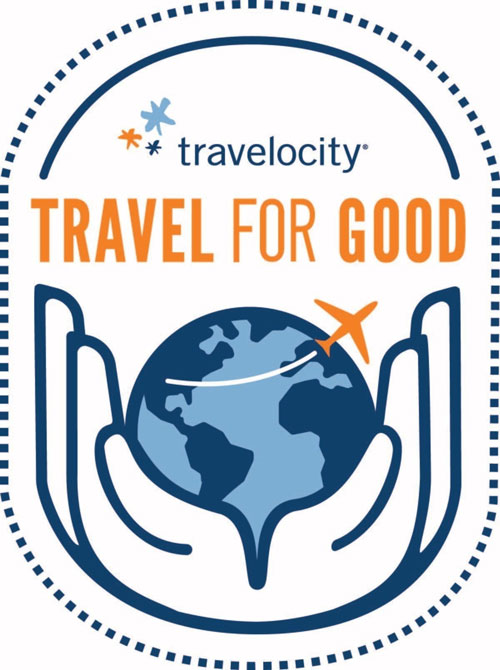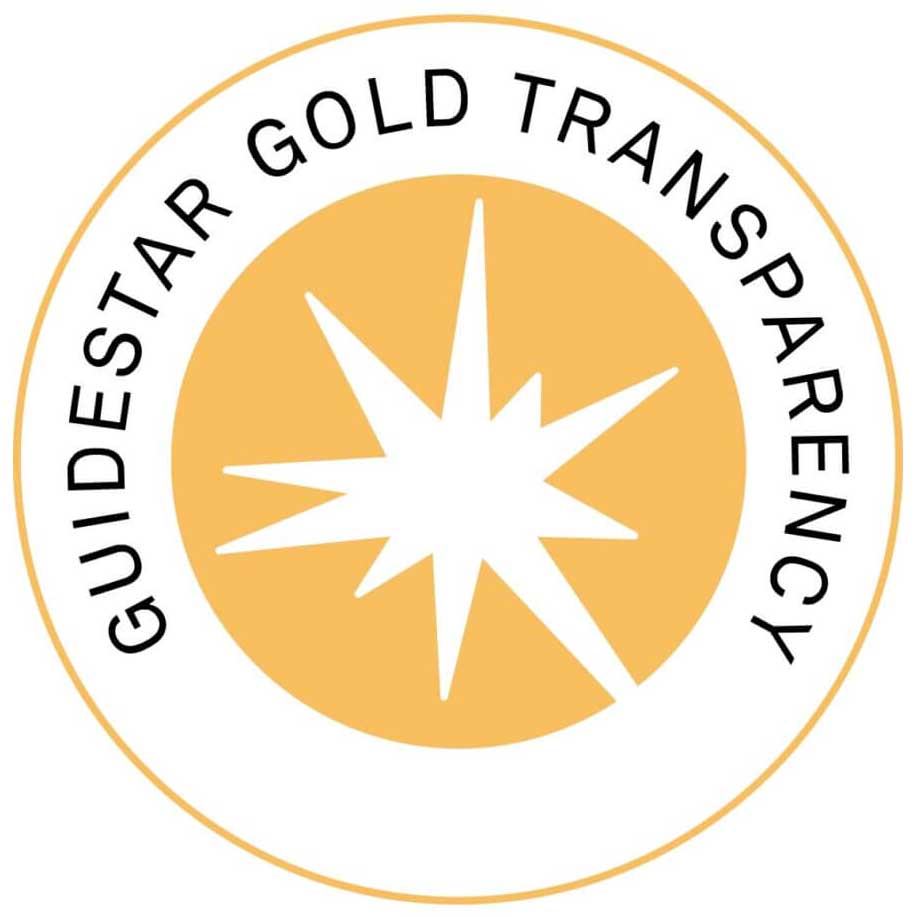Featured Articles Style 2
Featured Articles Style 2
Featured Articles Style 2
Volunteer Programs Helping Companies Connect Globally
- Source: Stratfor Enterprises
Corporations of all sizes have international suppliers, manufactures, agents and customers. Learning about the countries, communities and people is important in understanding how best to manage these business relationships.Kimberly Haley-Coleman of Globe Aware has decades of experience leading groups around the world on short-term volunteer experiences and creating and managing volunteer abroad solutions for groups and companies of every size.
Managing Risk and Reward When Volunteering Abroad
Nearly every public company in the world, and an increasing number of smaller companies, have some level of international engagement linked to their core business. It's part of the globally connected present. Industries ranging from medical, tech, import-export, energy, and finance to agriculture, production, construction, manufacturing, marketing, executive and risk management need to be alert to how geopolitical events could affect their people, product and profit.
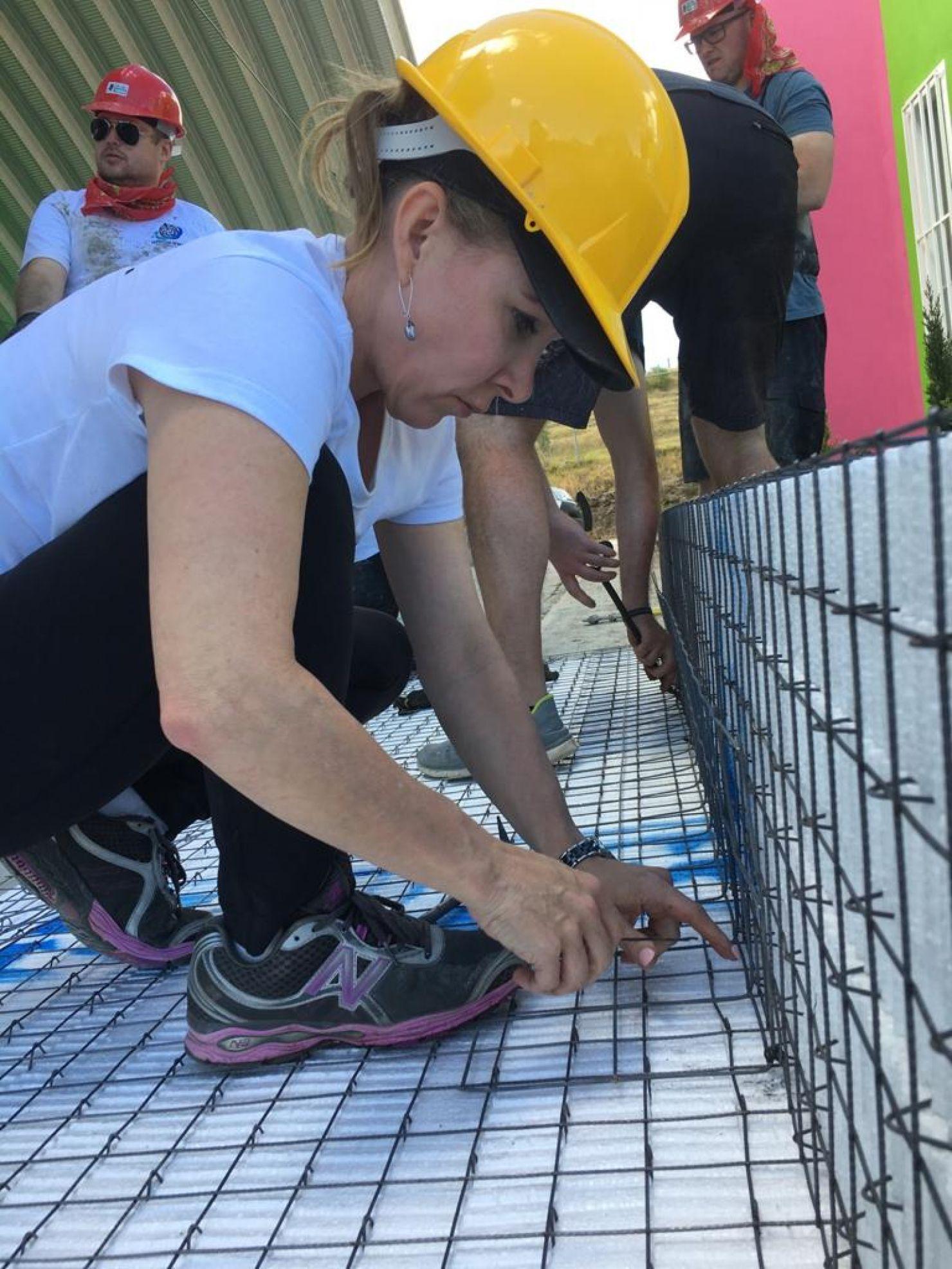 At Stratfor, we believe success in working internationally can be developed with the application of geopolitical know-how: understanding the implications of historical, social and cultural mores, business practices, geography, politics and infrastructure of the countries where you choose to do business.
At Stratfor, we believe success in working internationally can be developed with the application of geopolitical know-how: understanding the implications of historical, social and cultural mores, business practices, geography, politics and infrastructure of the countries where you choose to do business.
Tracking and managing those geopolitical risks can be nearly unmanageable for smaller companies, unless they have strategies and partnerships in place to complement what they can do themselves.
Kimberly Haley-Coleman has firsthand knowledge of what's at stake. She is founder and Executive Director of Globe Aware, a non-profit company that develops short-term volunteer programs in international environments. The company's goal is to provide an immersive volunteer experience for busy professionals who want to make a difference in a short amount of time doing projects that are actually requested by the communities they serve. Ventures in giving range across continents, from Southeast Asia to South America to Eurasia and beyond. Globe Aware works with communities on projects they identify and volunteers in both service work and learning more about the people with whom they are working. Globe Aware links volunteers with ventures and people all over the world.
I'll say it's sort of a mini-Peace Corps experience. While the typical Peace Corps experience is a 2 1/2 year commitment, this is a one week intensive immersion.
Globe Aware volunteers immerse themselves in service and in a community. Projects range from building schools in the Andes to building irrigation projects in Southeast Asia to teaching students in Guatemala to working at an animal rescue in Costa Rica or preserving elephant habitat in Thailand.
"I'll say it's sort of a mini-Peace Corps experience," Haley-Coleman explained. "While the typical Peace Corps experience is a 2 1/2 year commitment, this is a one-week intensive immersion. It's similar in the sense that you're giving back to the community, side-by-side with locals, as equals, on some project that they've chosen, that's important to them, that will hopefully make a really big impact in a short period of time."
Prior to launching Globe Aware, Haley-Coleman led a distinguished career in a broad number of private sector fields tied together by a central theme: helping internationally-focused businesses succeed. As both a for-profit and non-profit leader, Haley-Coleman has a deep appreciation for the value of global awareness.
She told Stratfor that when she decided to launch her company, it became apparent on where she should focus in providing a potentially life-changing experience: awareness and mitigation of risk, and the need to understand at a deeper level the place where you are working.
First and foremost, while we're looking for communities that have need, we also want them to be communities that are culturally expansive... It doesn't mean we're necessarily in the communities of the greatest need, we have been asked to have programs and places like Somalia, Darfur, Afghanistan, Syria, and in terms of risk and liability we just aren't in a position to go into war-torn countries… We really have to watch in terms of safety where were putting our volunteers, and then the projects we work on have quite a few criteria. We're not operating heavy equipment and machinery, we're not high on ladders, we're not Doctors Without Borders, so we are not handling bodily fluids and things like that.
But confounding and complicating efforts is a continually shifting menu of issues that face most developing regions. These changes can be disruptive to people and business as well as potentially dangerous. Or they can be rich in opportunity, if you are knowledgeable and poised to take advantage of change. Haley-Coleman said:
We are very actively monitoring the state department sheets that come from Canada, the U.S. and England. They do a pretty good job of any even minor possible situations, such as an expected protest or strike. Then we also monitor the CDC… alerts relating to health and things like dengue fever, Ebola, Zika. This is another thing that's always changing. Avian influenza and H1N1, when those things came out they really impact who's willing to go where, and who's allowed on a plane and what is deemed safe or not. However, we also are staffed locally by people who are based there looking at that situation. Those can change too. For example, in Puerto Rico it's not just about, "Hey is there a hurricane coming, is there a protest, is there a war?" It's also, "Can we get the materials right now to even put roofs on houses, given how difficult it is to get donations delivered in Puerto Rico?"
The rapid pace of change from one project to the next and from one country to the next takes careful pre-planning and close attention during trips. There are always challenges to managing multiple projects across multiple continents from the home office to the field: including, sometimes, evolving in-country laws and even some level of corruption. Haley-Coleman says she enjoys navigating it all.
If materials are expected and needed at a particular location, the idea is all the materials are there before the volunteers get there. Well, there have been times when we've been asked for bribes to get materials there on time.
These are the kinds of things that are always changing so this is an area where it is helpful to have somebody who is notifying our volunteers of what's going on, what to expect, how much to pay for this or for that, where to get the best value for your money in terms of bringing money into a country. Because that's changed too, there was a time when travelers checks were the primary safe currency, and I would never tell anyone to do that now… While we have seen, in terms of bribes, where we're more likely to encounter that, the volunteer, it might be invisible to the volunteer. For example, if materials are expected and needed at a particular location, the idea is all the materials are there before the volunteers get there. Well there have been times when we've been asked for bribes to get materials there on time.
Haley-Coleman loves what she does, and enjoys the challenges presented by constant change and the constant need to stay updated. But those challenges have also become central to most businesses in the digital age. The same skills needed to juggle projects and secure the safety of supplies and people are critical elements for success — whether your business is local, national or global in scope.
Volunteer travel to Lake Peten Itza, El Remate, Guatemala
- Source: Globe Aware
A family’s tradition of sending grandchildren, once they reach the age of 16, on trips to introduce them to different cultures and people and around the world continues. Here is a travelogue entry by Zeth to Guatemala with Globe Aware. Previous grandkids selected volunteer work in the Andes mountains of Peru, with the Roma people of Romania and in a small rural village in the West African country of Ghana.
Day One: Lake Peten Itza, El Remate, Guatemala
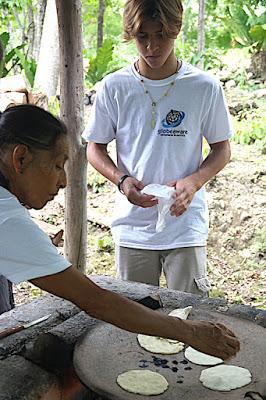
After a while a small older man walked in my direction, and I offered my best “Buenos dias, senor.” He offered me a mostly toothless smile and gently reached out toward me – but not his right hand, as if to shake hands, his left hand. He held onto my hand and we had this wonderful nodding and eye-to-eye exchange while he said something I couldn’t understand. Had he been an American in the U.S., I would have likely averted my eyes and pulled back thinking, “Why is he still holding onto my hand?” But he just continued to smile with old soul eyes and, as we parted, he blew me a kiss! For me travel is less about the big Eiffel Tower/Pyramids/Vatican imagery, and more these small, magical moments when we have real human contact with people we would otherwise never encounter. Blissful!
Day One was mostly orientation and a few hours of R&R. Globe Aware's local organization is Project Ix-Canaan, founded by Canadian Anne Lossing who came to Guatemala 20+ years ago toward the end of Guatemala’s long civil war. She wanted to empower the local Mayan community to protect their own rain forests, and identified the community first needed health, education and opportunity.
Over the years she and her Guatemalan husband, a doctor, have established a medical clinic and a dental clinic (at left) which is staffed largely by visiting clinicians from the U.S. and other places. (No patients on the weekend, so it was empty.)
They also have established an after-school youth development center and a women’s center, each of which we toured today.
We also visited a school where we’ll be teaching later in the week, and Anne pointed out shards of pottery on the ground – at least hundreds but easily 1,000 or more years old – that can be found in several places in this region called Peten. The Mayans believed that vessels had a kind of spirit and they would break most of their pots during sacrifices or in burials, and also every 40 years to start a new beginning.
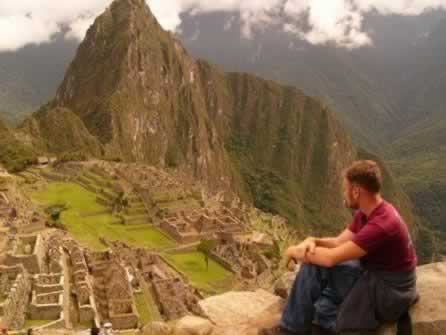
Volunteer travel experience in Peru with Globe Aware
- Source: Fresno State
A Fresno State lacrosse player shares her eye-opening volunteer travel experience in Peru and living with and learning from the Cuzco community. Enjoy!
Two weeks in Peru with Lauren Kiszely
7/24/2019 12:00:00 PM | By: Savannah Stoeckle / Communications Assistant
FRESNO, Calif. - For many college students summer vacation is a prime opportunity to visit with family and friends, go on vacation, attend concerts, make memories and escape from the books and mile high piles of lecture notes.

It’s winter; any idea where your legislator is?
- Source: Globe Aware
By MARTY TRILLHAASE
May 15, 2019
It’s admirable that Sen. Mark Schoesler, R-Ritzville, and Reps. Mary Dye, R-Pomeroy, and Joe Schmick, R-Colfax, compiled a perfect attendance score in Olympia this year.
But when you’re following strict rules, it’s easier to be diligent.
Schoesler, Dye or Schmick operate under a less-than-forgiving system: If they don’t show up to vote, their constituents back home in the 9th Legislative District will hear about it.
Not so in Idaho.
Spending time in the Legislature interfering with your business?
Get yourself a temp.
Legislative service interfering with your vacation plans?
Hire a sub.
Want to get an early jump on campaigning for office?
Appoint a fill-in.
You can’t find a more lenient system anywhere else.
It’s almost as if the legislators wrote this law for themselves — which, of course, they did. After all, this is same group that had to be dragged kicking and screaming before relinquishing a lucrative public pension perk. This is the same collection of politicians who won’t submit to outside ethics reviews or disclose minimal financial conflict of interest information about themselves.
In Congress and in most state legislatures, you vote or you don’t. You either resign or you don’t. Even grave illness is no excuse. For instance, the late Sen. John McCain, R-Ariz., stayed home while he was suffering from terminal brain cancer last year.
When Brenda Erickson, a senior research analyst at the National Conference of State Legislatures, looked into this a few years ago, she found a handful of states, including Washington, that allowed legislators to get a temporary substitute if they were called up for military service. The rest made no exception.
But in Idaho, a lawmaker can take time off “for any reason,” nominate a designated replacement and have the governor make the appointment “until the incumbent .... shall be able to resume the performance of his duties. ...”
This year, 11 state representatives — nearly 16 percent of the House — and six senators — 17 percent of that chamber’s membership — took time off and relied on a temp.
The first one to take a break was Rep. Thyra Stevenson, R-Nezperce, who on Jan. 17 relied on Morgan Lohman of Lewiston to serve as her substitute. By the end of the session last month, there were so many temps on the House and Senate floor that you might have trouble keeping them straight.
Some absentees, such as Sen. Dan Johnson, R-Lewiston, had medical reasons. Johnson required shoulder surgery and departed on March 27 — about two weeks before final adjournment.
Then there was Senate President Pro Tem Brent Hill, R-Rexburg. A scheduled trip to Vietnam beckoned and the highest ranking member of the state Senate left his post on April 4.
“Through an organization called Globe Aware, we spent long days working at a school for deaf children, building a home for an elderly widow, teaching English and other activities, ” Hill explained to his constituents in a newspaper column. “Because Idaho’s legislative session persisted longer than expected, I finally asked Eric Erickson to fill in for me for what I assumed would be the last day or two, so I could keep my other commitment in Vietnam.”
Nobody elected Erickson.
Nobody elected Kay Maurin of Moscow, either.
She subbed for Rep. Caroline Troy when the Genesee Republican needed to be in Alaska at the end of February.
While Troy was gone, Maurin joined a narrow majority of House members in killing a bill that would have ended the practice of allowing children younger than 16 to be married in this state.
Troy was a co-sponsor of that bill. Somehow, she failed to convey that information to Maurin ahead of the vote.
Who knows how the outcome might have changed had Troy been in Boise that day? At least, the measure would have had one more vote. Possibly, Troy’s advocacy might have swayed other House members to join her in passing it.
There is no more egregious case than that of former Rep. Paulette Jordan, D-Plummer. Last year, she got the bug to run for governor and preferred campaigning to remaining at her job. Ultimately, Jordan resigned — but until she did, Idaho’s easygoing system allowed her to have Margie Gannon serve as her temporary replacement.
At some point, the system seems to feed on itself. If they operated under tougher rules, would legislators schedule vacations that could conflict with a longer-than-expected session? Would they take time off for business trips?
Or, if Idahoans weren’t so tolerant, would their elected representatives in Boise stay put? — M.T.

A profound volunteer travel experience
- Source: Idaho Post Register
Idaho Senator Brent Hill shares the profound impact a Globe Aware volunteer vacation he took to Vietnam with his sons had on him.
What Vietnam taught me about Idaho
By Sen. Brent Hill | Guest columnist Apr 25, 2019
Vietnam. The very word sent chills down the back of every young man facing possible military draft during the sixties. It summoned to the mind other words like guerrilla warfare, Vietcong, communism, casualties. Over a quarter of a million American families lost a loved one in the Vietnam War. Four times that many Vietnamese were killed.
As a boy growing up in the 1960s, I never expected to visit Vietnam — at least not for peaceful purposes. But earlier this month, three of our sons and one of my brothers traveled with me to an island in Vietnam.
We were there to conduct service projects in a country still recovering from decades of war. Through an organization called Globe Aware, we spent long days working at a school for deaf children, building a home for an elderly widow, teaching English and other activities. Because Idaho’s legislative session persisted longer than expected, I finally asked Eric Erickson of Rexburg to fill in for me for what I assumed would be the last day or two, so I could keep my other commitment in Vietnam.
Mixing mortar with shovels and laying brick in 95-degree weather with 88 percent humidity was difficult compared to sitting in airconditioned committee meetings at the statehouse. But it was also therapeutic. Surrounded by deaf and hard-of-hearing children longing for attention and starving for affection helped put life’s challenges back into perspective.
Mai McCann is a dedicated nurse from Australia. She works three months each year in Australia so she can spend the other nine months in Hoi An, Vietnam, helping hearing-impaired children. Through her school known as Hearing and Beyond, she teaches 26 students, ages 3-16, with many more on a waiting list — children who would otherwise remain uneducated, lonely, socially isolated and sometimes abandoned.
In a rundown building with limited facilities, the children are taught social and life skills while learning Vietnamese sign language, reading, writing and math. They are fed modest meals, some of which comes from a small garden behind the school. We spent one day building a chicken coop so they could have eggs and meat for some meals. But the best part came the next day when we unexpectedly showed up with two dozen hens, five hundred pounds of rice and a bag full of small toys and games for the children.
I have enjoyed smiles before — I have cherished expressions of appreciation — but none have been more poignant than the smiles of joy and shouts of gratitude from excited children who had so little to be grateful for.
Although most of the work was completed, I felt bad about leaving the legislative session before final adjournment. But the few hours I missed surrounded by skilled colleagues within the walls of the Capitol were surpassed by the days I spent laying brick and constructing a modest chicken coop surrounded by children who could neither hear nor speak, but who effectively communicated life’s most important lessons.
In contrast to what I saw in Hoi An, Idaho’s economy is near the top nationally and our poverty rate is one of the lowest. This is one of the safest places in the world to live. We continue to attract businesses and families wanting to relocate in a state that values education, workforce development, quality of life, freedom and family.
I love this state. And the short time I spent away from Idaho, in a country I grew up despising, not only taught me to cherish the people there but also deepened my love for Idaho. I needed to be reminded again how blessed we are and, for a time at least, I will feel more grateful, smile more often, serve more willingly and love more compassionately.
Brent Hill is the Pro Tem of the Idaho Senate.
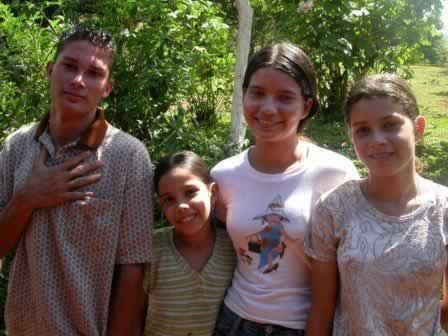
International Volunteers day supported by Globe Aware
- Source: Samoa Observer
Many marked International Volunteers day with celebrations this week. Globe Aware supports the same vision in this article and reinforced by the State of the World Volunteering Report released last week, that this kind of unpaid service supports peace and social cohesion that helps everyone. Here is a great article in the Samoa Observer, on how volunteers celebrate with games, fashion parade.
Volunteers celebrate with games, fashion parade
By Sapeer Mayron
09 December 2018
With the formalities done on Wednesday, International Volunteers Day took on another flavour yesterday at One U.N House in Tuanaimato.
Volunteers from Japan, the United States, Australia, New Zealand, and other far flung places gathered to be pampered with speeches, good food, and sports out on the field.
They even treated each other to a fashion show, to display the Samoan workwear and accessories they’ve acquired on their journey.
Page 4 of 25
